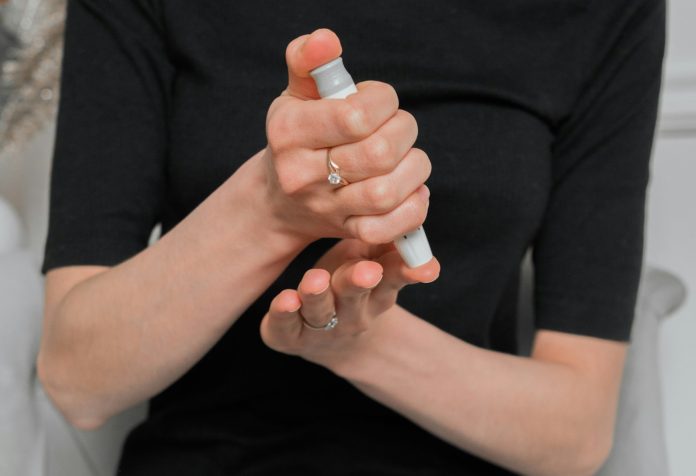
Recent research from the University of Michigan has revealed that many people with type 2 diabetes are testing their blood sugar levels more frequently than necessary, leading to unnecessary costs and stress.
The study found that 14% of patients with type 2 diabetes who do not require insulin are purchasing enough test strips to monitor their blood sugar two or more times a day, despite medical guidelines suggesting that such frequent testing is unnecessary for these low-risk individuals.
The study focused on patients with type 2 diabetes who do not benefit from daily blood sugar tracking. This group includes those who do not take any blood sugar-lowering medications and those who take oral medications that do not require regular monitoring.
For these patients, frequent blood sugar testing does not contribute to better management of their condition and may even cause undue anxiety.
The researchers analyzed data from a national insurance database, which included 370,740 people with type 2 diabetes who were not taking insulin but had filled prescriptions for large quantities of test strips.
Specifically, the study looked at patients who filled prescriptions for packets of 90 test strips three or more times a year.
The findings were striking: more than 20% of these patients did not fill any prescriptions for diabetes medications, suggesting they did not require frequent blood sugar monitoring.
Additionally, 43% of the patients were taking medications like metformin that do not pose a risk of hypoglycemia (dangerously low blood sugar levels), which further reduces the need for daily testing.
Despite this, 63% of the patients who filled test strip prescriptions were using an average of two test strips a day, even though their condition did not necessitate such frequent monitoring.
The study highlights the unnecessary burden this overtesting places on patients and the healthcare system.
For patients, this practice can lead to wasted time and increased worry about their condition. For insurance providers, covering the cost of excess test strips results in hundreds of dollars in unnecessary expenses each year.
The researchers suggest that some patients might test their blood sugar frequently to monitor how their diet, exercise, and medications affect their levels.
However, for those who do not need to test daily, healthcare providers should inform them that they have the option to reduce or stop daily testing.
Instead, providers could recommend more meaningful tests, such as the HbA1c test, which measures average blood sugar levels over the past two to three months and provides a clearer picture of overall blood sugar control.
This research, conducted by Kevin Platt and his team, and published in JAMA Internal Medicine, underscores the need for better patient education regarding the appropriate use of blood sugar testing.
By aligning testing practices with medical guidelines, patients with type 2 diabetes can avoid unnecessary stress and healthcare costs, while still effectively managing their condition.
If you care about diabetes, please read studies that pomace olive oil could help lower blood cholesterol, and honey could help control blood sugar.
For more information about health, please see recent studies that blueberries strongly benefit people with metabolic syndrome, and results showing eggs in a plant-based diet may benefit people with type 2 diabetes.
Copyright © 2024 Knowridge Science Report. All rights reserved.



